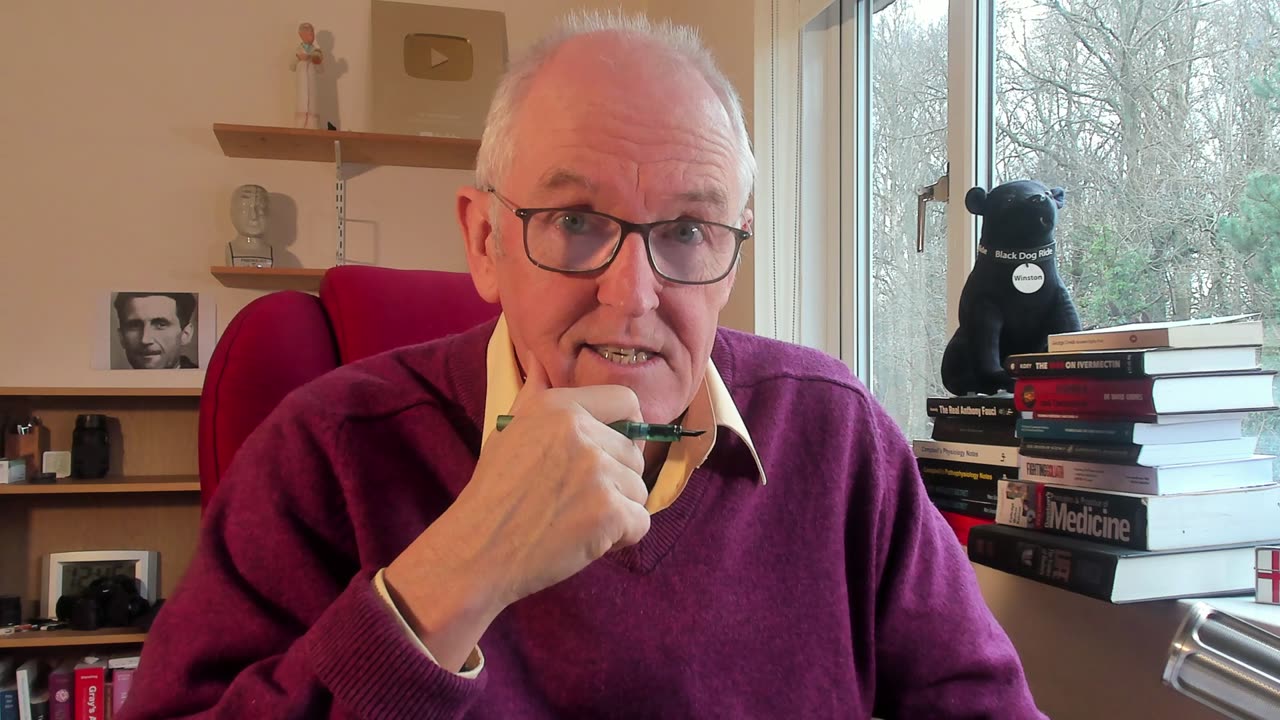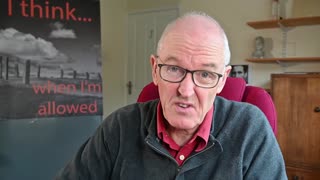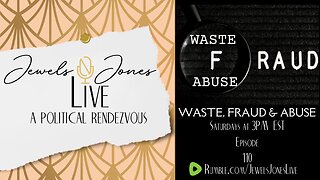Premium Only Content

The Banality of Evil
The Seven Principles of Public Life
Nolan Principles
Committee on Standards in Public Life
https://www.gov.uk/government/organisations/the-committee-on-standards-in-public-life
Selflessness
Holders of public office should act solely in terms of the public interest.
Integrity
Holders of public office must avoid placing themselves under any obligation to people or organisations that might try inappropriately to influence them in their work.
They should not act or take decisions in order to gain financial or other material benefits for themselves, their family, or their friends. They must declare and resolve any interests and relationships.
Objectivity
Holders of public office must act and take decisions impartially, fairly and on merit, using the best evidence and without discrimination or bias.
Accountability
Holders of public office are accountable to the public for their decisions and actions and must submit themselves to the scrutiny necessary to ensure this.
Openness
Holders of public office should act and take decisions in an open and transparent manner. Information should not be withheld from the public unless there are clear and lawful reasons for so doing.
Honesty
Holders of public office should be truthful.
Leadership
Holders of public office should exhibit these principles in their own behaviour and treat others with respect. They should actively promote and robustly support the principles and challenge poor behaviour wherever it occurs.
Lord Michael Patrick Nolan
The Seven Principles of Public Life (also known as the Nolan Principles) apply to anyone who works as a public office-holder.
This includes all those who are elected or appointed to public office, nationally and locally,
and all people appointed to work in the Civil Service, local government, the police, courts and probation services, non-departmental public bodies (NDPBs),
and in the health, education, social and care services.
All public office-holders are both servants of the public and stewards of public resources.
The principles also apply to all those in other sectors delivering public services.
The Banality of Evil
Hannah Arendt, Eichmann in Jerusalem: A Report on the Banality of Evil, The New Yorker, 1963.
https://aeon.co/ideas/what-did-hannah-arendt-really-mean-by-the-banality-of-evil
C.S. Lewis, Preface to The Screwtape Letters, 1942
“The greatest evil is not now done in those sordid dens of crime that Dickens loved to paint.
It is not done even in concentration camps and labour camps. In those we see its final result.
But it is conceived and ordered (moved, seconded, carried, and minuted) in clean, carpeted, warmed and well-lighted offices,
by quiet men with white collars and cut fingernails and smooth-shaven cheeks who do not need to raise their voices.”
https://open.spotify.com/episode/5sxut2ugUdQwbAlGjQfZMC?si=UW3vWzp-R8ySYgMyUz-2Uw
Isaiah 5:20
https://www.biblegateway.com/passage/?search=Isaiah%205%3A20&version=NIV
Woe to those who call evil good and good evil,
who put darkness for light and light for darkness,
who put bitter for sweet and sweet for bitter.
-
 18:26
18:26
Dr. John Campbell
18 days agoMetabolic reset
18.4K98 -
 DVR
DVR
Jewels Jones Live ®
1 day agoWASTE, FRAUD & ABUSE | A Political Rendezvous - Ep. 110
36.1K7 -
 LIVE
LIVE
BlackDiamondGunsandGear
1 hour agoAnderson AR-15 / Is Budget Trash?
286 watching -
 1:21:05
1:21:05
Michael Franzese
6 hours agoDemocrats MELTDOWN Over DOGE—Plus More on JFK’s Assassination | LIVE
60.3K81 -
 10:02
10:02
RTT: Guns & Gear
15 hours ago $0.75 earnedEAA Girsan Influencer X 1911 - The Cheat Code For Accuracy
6.64K -
 11:03
11:03
Degenerate Jay
3 days ago $0.17 earnedHenry Cavill James Bond Was Almost A Reality
4.58K7 -
 31:58
31:58
CarlCrusher
1 day agoDiscovering the Secret Ultra Low Spectrum for UFO Contact and Skinwalker Ranch
4.08K -
 3:44
3:44
Rethinking the Dollar
1 day agoMichigan’s Big Bitcoin Move—What It Means!
16K1 -
 16:56
16:56
Chris From The 740
15 hours ago $0.19 earnedIs The Ruger RXM A Viable Carry Option? Let's Find Out!
9.19K3 -
 38:28
38:28
Athlete & Artist Show
7 hours ago $6.04 earnedNHL 4 Nations Face Off High Stakes Betting
85.5K5